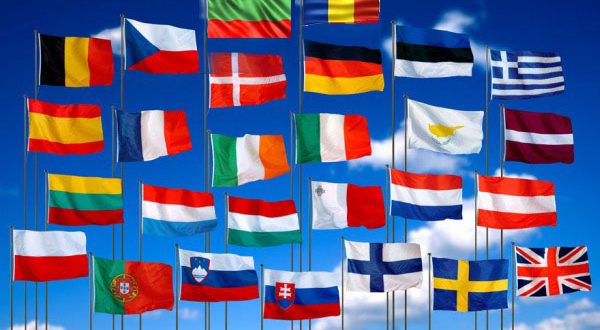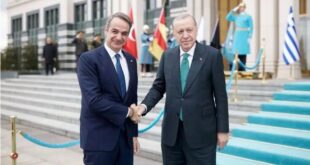The state
The State is a social contract, a guarantee of social order in exchange for which the citizens agree to reduce their freedom. According to Carré de Malberg, one of France’s leading constitutional scholars, “the state is a community of men attached to a territory with an organization, from which results for the group engaged in relations with its members a supreme power of action and coercion.” More clearly, the state is the result of a population, a territory and a sovereignty.
- Population
First, the population consists of all the persons living in the territory of the State, under its authority. This is linked to the idea of territory and not of nationality. There are states like Switzerland for example which are multicultural. As regards the right of distinct nationalities to a state, there is a whole debate about the right of peoples to self-determination. The UN Charter’s Article 1, paragraph 2, 1945 and the General Assembly Resolution 1514 of 14 December 1960 seeks to clarify precisely this issue, and it can be argued that today this right is being exercised by national minorities in places such as Crimea.
- The territory
The territory is the idea of a safe space in which the state is expressed. It goes back to the idea of the social contract whereby some degree of personal freedom is exchanged for the safety offered by the state. However, there are territories without states, such as Antarctica, which was internationalized in 1959.
Three are three dimensions associated to territory: the earth dimension, the aerial dimension and the maritime dimension. As regards borders, they can be natural, such as mountains and rivers, or artificial. The Love River between China and the USSR has changed the course of its bed and this move has opened a conflict. The concept of borders was developed by cartographers in the XVI century. The notion of the state also appeared around this time.
- Sovereignty
Finally, sovereignty is the existence of a political organization that exercises its authority over the territory and the population. The concept has been theorized by the jurist Jean Bodin. The state is home to the sovereign power. This is what differentiates the state from the society.
The state determines who exercises power. In France, the article 3 of the Constitution specifies that national sovereignty belongs to the people, who exercise it through their representatives and by referendum vote. In Sweden, national sovereignty is based on freedom of opinion. In some states, such as Austria or Belgium there is no constitutional definition of sovereignty. In the UK, the concept of parliamentary sovereignty based upon popular representation is central.
Every day states interact with each other. These interactions are, at least in theory, underpinned by the principle of equality among states: the corollary of equality and the principle of non-interference in internal affairs. The state is a subject of international law, it is able to adopt Conventions, and negotiate treaties. Finally, if no one recognizes a state, there can be no international relations. The recognition comes from international law, and is a unilateral act by which a state acknowledges the existence of certain facts or implicitly admits considering them as elements on which its legal relationship will be established.
The nation
After the state, it is interesting to study the concept of the nation. This concept is particularly difficult to define. Each of us can have our own definition about what constitutes a nation. The meaning changes over time. First of all, it is worth mentioning that the concept of nation is related to ethnic community. This community has a common history, shares the same culture, and a common territory. In short, the nation is a result of the various elements which connects the people inside it. The nation is more impersonal, more abstract than an ethnic group. It is like a cultural-political community that has become aware of its coherence, its values and its particular interests.
Among many other political thinkers, two key authors have sought to define the concept of nation. For Benedict Anderson, it is more like an “imagined community” whereas for Paul James it is like an “abstract community.“ Vance Packard, an American journalist, used the phrase “a nation of strangers” in order to explain that in a nation, each person is basically a stranger to the others. The work of social scientists such as Johann Gottlieb Fichte or Ernest Renan can help provide a better understanding of nationhood. Fichte Gottlieb and the German tradition argues that the nation predates the state. It is sharing a common language, religion, culture, history and ethnic origins. The people who share those traits, delimit the nation. The nation forges the state. This is the objective definition. On the other hand, Ernest Renan and the French tradition of civic nation explains that the state forges the nation by an act of affirmation. The public power designs the citizen. This is the subjective definition.
Today, analysis tends to be based on socio-historical studies about the building of national identity feelings, trying to identify the individual and the collective. It is fundamental that we do not confuse nation and nationalism. Nationalism is an ideology that sets up a hierarchy between nations. It is placing one’s nation at the top of this imagined hierarchy. Nationalism justifies conquests, colonization and the destruction of others nations.
The Nation-State in Europe
The nation-state is a theoretical, political and historical concept expressing the juxtaposition of a state (as a political organization) and a nation (individuals who consider themselves bound and belonging to the same group).
The nation-state has become the standard in Europe. Nevertheless, there are many types of nation-states according to different points of view. We find criteria such as the language, the age, the spirit of openness, the independence of the society, the European integration and so on. Actually, there isn’t one single definition of the nation-state. On the other hand, some European states are not a nation-state, for example Luxembourg, Switzerland, Belgium, Ukraine or Austria. The sovereignty of these states is not complete. If the state does not control everything, citizens can have a sense of national purpose, especially by the attachment to the land.
Federalism
Federalism can be defined as “a group of communities who agree to give up some of their jurisdiction in favor of the group they represent”.
With federalism, there is a federal constitution that organizes the relationship between the federal entity and the federal state. Only the federal government has an international existence. There are several kinds of federalism: by association such as Germany and the United States or by dissociation such as Belgium.
In a federal state, a principle of superposition between legislative orders, executive and judicial is in place. That is to say, the federal outweighs the state level. We also find a principle of autonomy for the federated entities with their own jurisdiction. In the German fundamental law of 1949, the federal level has exclusive powers such as foreign policy or defense, but also concurrent jurisdictions and complementary skills where the federal state sets the framework of the action.
On the other hand, federalism is based on the principle of subsidiarity, the most relevant level. For instance, it is more logical that municipalities decide the schedules of the bus stops rather than fight against climate change. The participation of federal entities at the federal state is done through the legislation. In the legislation, there are usually two Houses: one for the population and another representing the federated state. In Austria, there is an indirect federal administration. When a law of the Länder alters the organization of the administrative authorities of the territory, the consent of the federal government is required. The budget of the federal entities is negotiated every 4 years with the federal state, with a fund transfer from the federal level to the federated entities. The Austrian scheme resembles a highly decentralized unitary state.
The European Union and its purpose
The European Union is a sui generis association of 28 European States which delegates the exercise of certain powers to common bodies or organisations through treaty agreements.Currently the EU works with two Treaties: the Treaty on European Union (TEU) and the Treaty of the Functioning of the European Union (TFEU). The origins of the European Union go back to the end of the Second World War when six European countries agreed to pool their coal and steal resources . The declaration of May 9th1950 by Robert Schuman marks the starting point of the EU. It was a time of recovery and the need for peace on the continent was acute. For Jürgen Habermas the European Union is “the first example of a democracy beyond the nation state.” Yet at the same time, Habermas believes that to “melt the national identities of the Member States into a nation called Europe is neither possible nor desirable.”
Rooted in the Treaties, the European Union places each member-state at the same level. The EU has a supranational character. It is the only organization in the world where a state can be made to apply a decision to which it was opposed. Its space is the result of the willingness of its members. But the states have chosen this situation. Jean-Marc Ferry, a philosopher, argues that “sovereignty is shared on the exercise, this is the co-sovereignty of the Union in the sense that the nations no longer have a monopoly on the edition of the standards in their own territory». But for Alain Dieckhoff, acceptance by Europeans of the European construction is mainly due to interests, while they remain very attached to their national identities. He argues that “Europe has not yet entered a post-nationalist phase”.
European integration has not abolished the national territory or the national sovereignty. Each member state is involved on behalf of the sovereign people. And the European Council is a collection of states whose decision-making role is crucial. In doing so, the European nation-states as a state-member of the European Union, determine the legislation. Since the Maastricht Treaty, Europeans have formalized a European citizenship that has existed since the first elections to the European Parliament in 1979. The borders of the European Union are not defined. The territory of the European Union is both a territory in itself and a puzzle of states characterized by their territorial sovereignty. This hybrid is seen as the fact that it is sufficient that a state withdraws or enters the EU for seeing the change. Also, the sovereignty exercised by the European Union is legally and geometrically variable. This is the case in some areas such as the euro or the Schengen area. This area does not include the United Kingdom or Ireland but does include Iceland and Norway.
The direct representative democracy by people, which is achieved through elections and parties, is largely absent. Within the EU, the people are represented indirectly by their heads of the state, the government at the Council, or directly but weakly in the European Parliament. The EU lacks this direct link with the electorate that would allow the latter to express its opinion on European public policy by voting for a government. If the Union is already largely depoliticized, it may also depoliticize the national level. Gradually, the national public policies move from the national to the European level space and internal political debates are thereby impoverished. It is not always easy to organize cross-sectional associations in other member countries to have an impact at a European level. Anyway, even if the increase of pressure groups is positive for associative democracy, it does not solve the problems of representative democracy. National politicians have the habit of making the EU the scapegoat for unpopular policies and keeping the glory of politically acclaimed decisions to themselves.
The impact of the EU on the Member States in this field also depends on the institutional logic of each one of the states. Adapting to the EU is probably more difficult for “simple” political regimes such as those of France or the UK where the government is traditionally stateless and only has one authority, than it is for the more “complex” political regimes such as those of Germany and Italy, where the activity of governing is shared between multiple authorities, such as the European level. However, the crucial question is: Should we politicize the European institutions? Why Europe? What does it mean to be a “European“?
References:
Sylvain Kahn, “The nation-state as a territorial myth of European construction” Geographic Area 2014/3 Volume 43, p. 240-250.
Vivien A. Schmidt, “The European Union does she creates or destroys democracy? “Foreign Policy, Fall 2007/3, p. 517-528. DOI: 10.3917 /
This article was written by Robin Alves and published first on One Europe
 Infowelat Enformasyon Ji Bo Welat
Infowelat Enformasyon Ji Bo Welat





